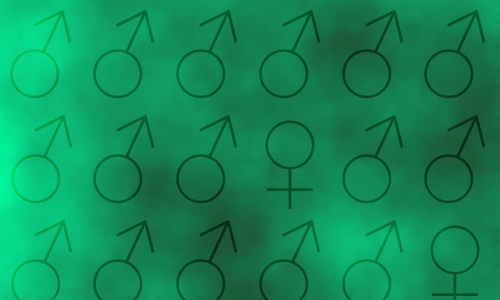Women may make up the majority of those working in publishing, both in trade and in scholarly publishing, but there is a notable gender gap in the authorship of academic papers. West et al.’s algorithmic survey of the academic journal library JSTOR’s collection of articles found that there was no major academic field in which women made up the majority of authors. Some fields, such as mathematics and philosophy, have more than seven author credits given to men for every one given to women.

Even with minor methodological limitations considered—the algorithmic approach to identifying both academic disciplines and author gender might lead to some problems, as might the 1990–2011 range—the results are striking and consistent with other studies and observations about academic journal publishing. There are problems!
What might the problems be? Gender gaps do exist in some of these fields as a whole, which can account for some of the gender gap in authorship. West et al. include a chart in their paper which shows that the number of mathematics PhDs held by women ranged from 13–18 percent in the 1980s to 25–30 percent in the 2000s. It would make sense to see fewer author credits given to women in such a context, but it doesn’t come close to explaining the 10 percent figure.
Emma Pierson, writing in FiveThirtyEight about the gender gap in scientific publishing, discusses how the contributions of women to scientific papers can be ignored. An anonymous interview subject tells her “[s]ome men get added to papers even if their contribution was cosmetic, yet women who contributed ideas (and perhaps even writing or data) are left out.” This could happen in a myriad of ways, but one particularly disturbing example is shared in a Scholarly Kitchen article about sexism in peer review. In 2015, a reviewer at the mega journal PLOS One commented on a submitted article that the two women authors should find “one or two male biologists to work with (or at least obtain internal peer review from, but better yet as active co-authors)” to guard against “drifting too far away from empirical evidence.”
Of course, a lot of this is outside of the control of publishing. Bias and discrimination in academia, as well as in wider society, is not something the publishing field can address directly. But the publishing field isn’t completely separate from academia and society either. The ability for women to get their scholarship published and get prominent attribution for it is key to the advancement of women in academia. Any academic journal editor should take seriously the possibility of review processes that could be biased against women, because there clearly is a problem, and it’s worth addressing wherever it may be found.

